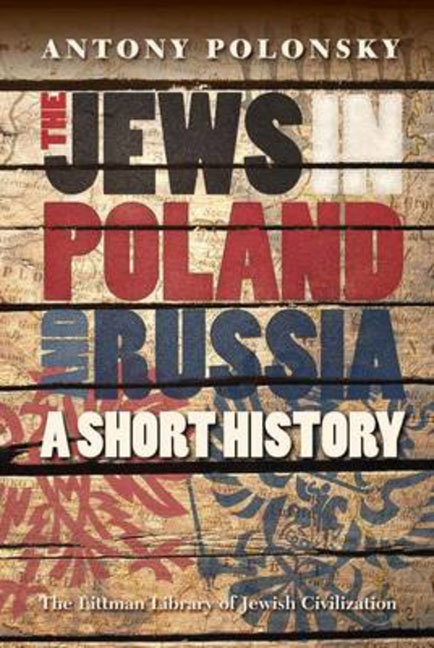Book contents
- Frontmatter
- Dedication
- Preface
- Acknowledgements
- Contents
- List of Maps
- Note on Transliteration
- Note on Place Names
- Maps
- Introduction
- 1 The Polish–Lithuanian Background
- 2 Attempts to Transform and Integrate the Jews, 1750–1881
- 3 The New Jewish Politics, 1881–1914
- 4 Social and Religious Change, 1750–1914
- 5 The First World War and its Aftermath
- 6 The Jews in Poland between the Two World Wars
- 7 Jews in Lithuania between the Two World Wars
- 8 Jews in Soviet Russia and the Soviet Union, 1921–1941
- 9 War and Genocide, 1939–1945
- 10 From the End of the Second World War to the Collapse of the Communist System
- 11 Jews in Eastern Europe and Russia since the End of Communism
- Conclusion
- Postword
- Glossary
- Notes
- Bibliography
- Index
8 - Jews in Soviet Russia and the Soviet Union, 1921–1941
- Frontmatter
- Dedication
- Preface
- Acknowledgements
- Contents
- List of Maps
- Note on Transliteration
- Note on Place Names
- Maps
- Introduction
- 1 The Polish–Lithuanian Background
- 2 Attempts to Transform and Integrate the Jews, 1750–1881
- 3 The New Jewish Politics, 1881–1914
- 4 Social and Religious Change, 1750–1914
- 5 The First World War and its Aftermath
- 6 The Jews in Poland between the Two World Wars
- 7 Jews in Lithuania between the Two World Wars
- 8 Jews in Soviet Russia and the Soviet Union, 1921–1941
- 9 War and Genocide, 1939–1945
- 10 From the End of the Second World War to the Collapse of the Communist System
- 11 Jews in Eastern Europe and Russia since the End of Communism
- Conclusion
- Postword
- Glossary
- Notes
- Bibliography
- Index
Summary
THE SITUATION of the Jews was very different in Soviet Russia and the Soviet Union. Here, their victory in the civil war enabled the Bolsheviks to apply the ideological principles they had developed for dealing with the ‘Jewish question’. National issues were seen by all the Bolsheviks as instrumental. They were to be judged on how they advanced the interest of the world revolution and the Soviet state. Where national groups were supported, this was a tactical alliance, like the alliance with the peasantry. The ultimate goal was the creation of a new socialist man who would be above petty nationalist divisions, and a single world socialist state. All those responsible for Jewish policy within the Bolshevik party sought this final goal; the only difference between them was their view on how long Jewish separateness could be tolerated. The aim was assimilation—a new version of Clermont-Tonnerre's view that the Jews were to be given everything as individuals and nothing as a community. Karl Radek, one of the leading Bolsheviks and a Polish Jew born near Kraków, defined the position of the new regime in an article entitled ‘My Country’. When, during the negotiations that ended the Polish– Soviet war in 1921, he told his Polish counterparts that ‘our country was the humanity which was seeking to liberate itself from the old tsarist empire and that in future it would be the whole world’, they responded, ‘You are in love with a dream, not a living country.’
And now my country is no longer a dream. It is the world's greatest anthill, the greatest building in the making. It is Life, from the Berezina to the Pacific Ocean, from the White Sea to the Black Sea, under one banner, under one leadership and with one will. My country has children who speak in a hundred different languages.
What characterized this new form of universalism was, above all, its hatred of any particularism or separateness.
- Type
- Chapter
- Information
- The Jews in Poland and Russia: A Short History , pp. 274 - 307Publisher: Liverpool University PressPrint publication year: 2013

